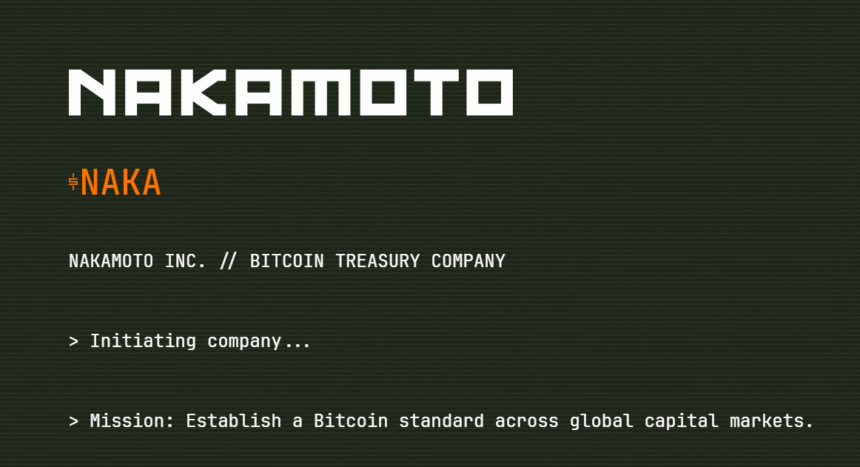On September 15, KindlyMD’s Nakamoto (NAKA) experienced a significant decline, dropping more than 55% and trading below the value of its Bitcoin holdings. This downturn came in the wake of the SEC-cleared resale of previously restricted shares related to recent financings. Currently, the company’s market capitalization is considerably lower than the value of its 5,765 BTC, indicating a stark discount in terms of Bitcoin per share.
The selloff was triggered by the September 12 effectiveness of a Form S-3 resale registration. This registration allowed PIPE investors—who participated in a $51.5 million Private Investment in Public Equity (PIPE) deal priced at $5.00 per share completed in June—to sell their shares on the open market. These investors also include those involved in an earlier PIPE agreement completed in May, which was valued at $1.12 per share.
Nakamoto’s funding strategy began in May with a merger agreement that brought in approximately $511.7 million through initial PIPE commitments. This effort was complemented by the $51.5 million add-on in June. Subsequently, on August 15, the company finalized a $200 million senior secured convertible note with an initial conversion price of $2.80 per share. Then, on August 19, it executed its first post-merger purchase, acquiring 5,743.91 BTC for nearly $679 million. On August 26, it implemented a $5 billion at-the-market program, further signaling its aggressive expansion strategy.
However, by September 15, NAKA’s market value had fallen to around $466.4 million, representing a 43% discount to its Bitcoin holdings of $665.8 million. This dramatic drop effectively equated the current enterprise value with that of its BTC assets, especially considering the impact of the $200 million convertible note on its financial standing.
Despite the turbulent market conditions, NAKA saw a modest recovery, with shares reportedly up 4% during pre-market hours at the time of publication.
This situation reflects the broader volatility often seen in the cryptocurrency and tech markets, where investor confidence can fluctuate rapidly in response to new developments.







